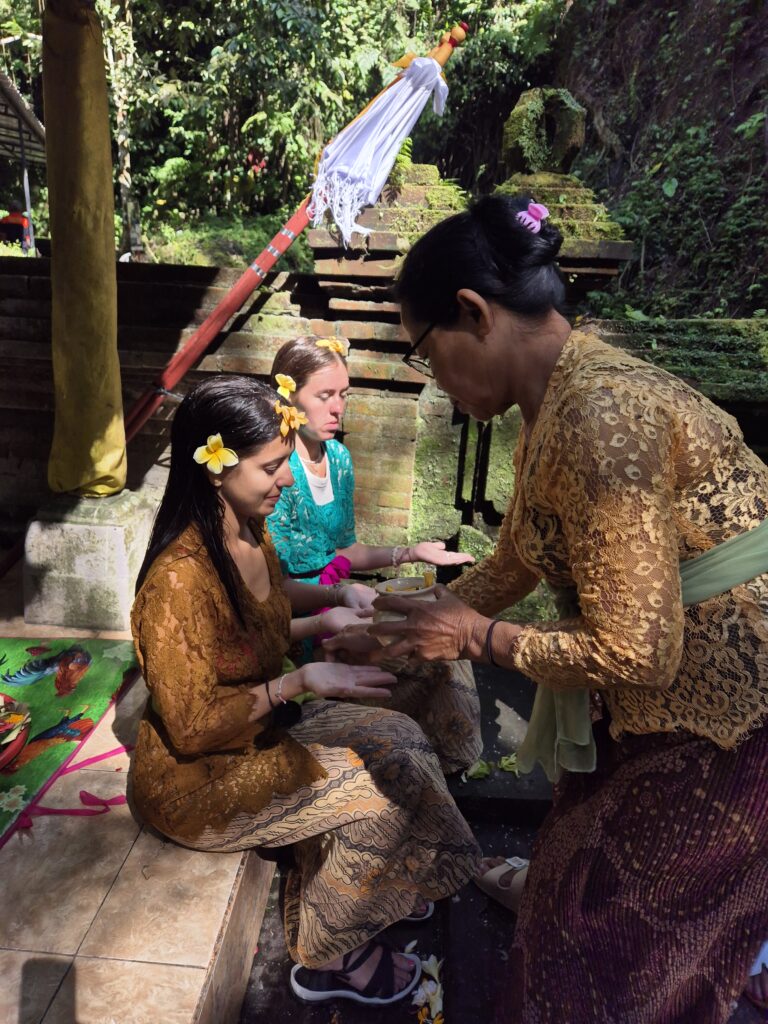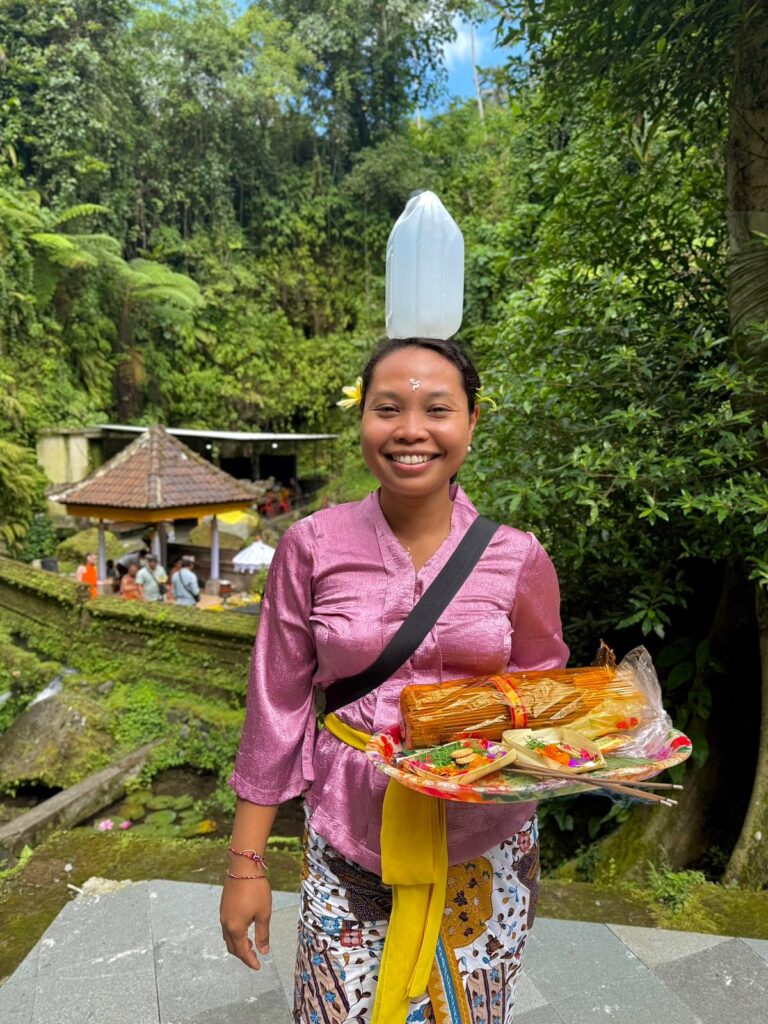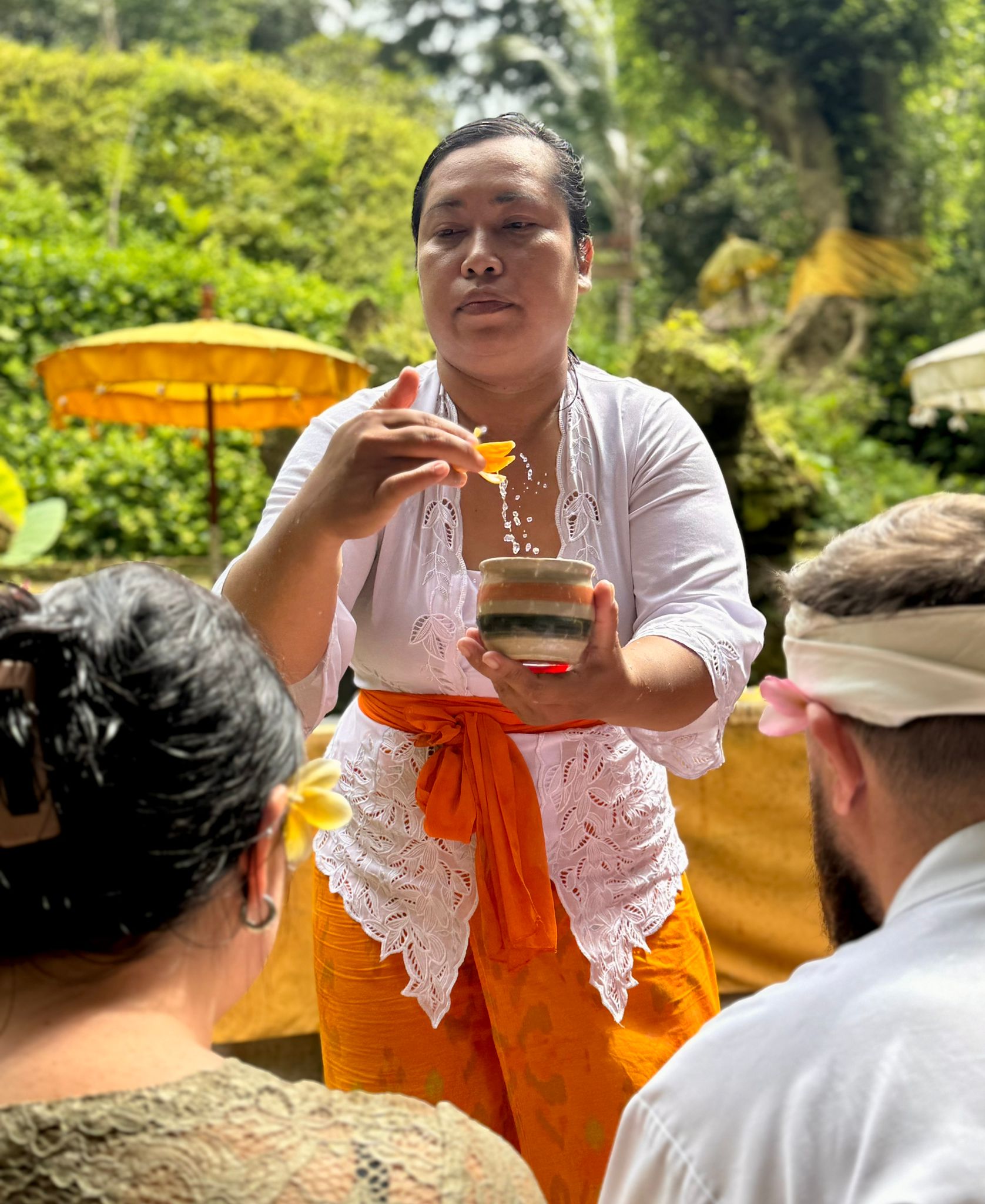The relationship between Balinese culture and the water element is deeply rooted in their way of life, spirituality, and traditions. Water is seen not just as a physical resource, but as a sacred element that sustains life and connects people to the divine.
In this post, we will dive deeper into the role of the water element as the element that symbolizes life, purification, and renewal in Balinese culture. Water is not only essential for agriculture and daily living, but also serves as a powerful spiritual force.
The essence of agriculture and daily life.
As the water flows from the caldera lake, it travels through rivers and irrigation systems, like the famed Subak system, which underscores communal cooperation in water management. This journey symbolizes not only the physical movement of water but also its transformative power. Throughout this path, it nurtures the rice terraces and village gardens, highlighting the Balinese belief in harmony between humans and their environment.
The earthly body of water relates to the spiritual context of the water
And then eventually, the water reaches the ocean, which is viewed as a sacred place teeming with spiritual significance. The ocean is respected as a source of life and abundance, providing food and resources for the community. It is also the site of various ceremonies and rituals. Balinese people often conduct offerings to the ocean, expressing gratitude and seeking blessings for prosperity and protection.
This entire journey—from the lake on the caldera to the vastness of the ocean—embodies the cyclical nature of existence in Balinese philosophy. It reflects how water not only sustains life but also serves as a bridge between the earthly and the divine, connecting the people of Bali to their spiritual beliefs and the natural world. Water, in this context, becomes a powerful symbol of life’s continual flow, transformation, and the importance of maintaining balance and harmony within the community and the environment.
Ceremonies and the rite of passage in Bali will not be complete without the presence of the water element or Tirta. A particular ceremony will require specific Holy Water or Tirta, either by collecting it at the Holy Spring Water Temple or requesting it from Ida Pedanda (the High Priest). For example: Mebayuh Oton Ceremony. Otonan is the Balinese birthday. Mebayuh Oton is a purification and blessing ritual performed during one’s Otonan (birthday) and aimed to cleanse the karmic debts, misfortunes and impurity from one’s soul helping in building good and positive character. At the Holy Water Temple of Pura Mengening, there are 11 Holy fountains to be explicitly used for Mebayuh Oton that symbolize the Deities residing in the cardinal and intercardinal directions as well as above, below, and the middle.
Another example would be that Tirta Pangentas is required only for the death ceremony. Tirta Pangentas possesses a sacred power that brings peace to the soul of the deceased, allowing it to continue its journey towards the light.
The Feminine Forces and Connection with Feminine Ancestors

The feminine element of water is often celebrated in various cultures as a symbol of intuition, emotion, and nurturing. In many traditions, water is personified as a feminine force, embodying qualities such as receptivity, compassion, and fluidity. This association draws on the characteristics typically linked to femininity, viewing water as a life-giving source that sustains and nurtures all living beings. The gentle nature of water also mirrors the nurturing aspects of femininity, symbolizing care, healing, and support. The water represents the emotional depth of women and the ability to flow through life’s challenges with grace. It is seen as a reflector of emotions, capable of calming storms or stirring up powerful currents.
The feminine energy in water serves as a profound connection to our feminine ancestors, embodying their wisdom, resilience, and nurturing qualities. This energy is often perceived as a continuation of their legacy, flowing through generations and reminding us of the deep-rooted bonds we share with our forebears. Just as water sustains life, it symbolizes the nurturing spirit that has been passed down, encouraging us to embrace compassion, intuition, and emotional depth. This connection invites us to honor our past, acknowledging the roles that women have played in shaping our cultures and communities. The fluid nature of water reflects the adaptability and strength of women, who have historically navigated challenges with grace. As we tap into this feminine energy, we foster a sense of unity with our lineage, drawing on the lessons and experiences of those who came before us.
Water Element as the Medium of Purity, Healing, and Blessings
Water is often regarded as a medium of healing and purity in Bali. The island is home to numerous sacred springs and rivers, which are believed to possess spiritual significance.
In moments of reflection or ritual, water acts as the element that brings purity and healing. In the ancient water ritual in Bali called Melukat, water serves as a medium that washes away negative energy, thoughts, feelings, impurity, past traumas, and bad habits, leading to a spiritual renewal.
Water is used to make Tirta or Holy Water. Water collected from the sacred water source is added to flowers, and the mantra is chanted. If received during the ceremony or after prayers, this water is believed to carry blessings from God and the deities, promoting good health, fortune, inner peace, and spiritual harmony.
As much as the Balinese honor the water element in various ways, a similar perception can also be found in many other cultures around the world. Water is often seen as a source of life, purification, and spiritual significance across different societies. Similarly, indigenous cultures usually view water as a sacred element, integral to their rituals and connection with nature. This universal reverence for water reflects the essential role it plays in sustaining life and nurturing spiritual beliefs across cultures.

If you feel inspired by this post, take some time for yourself to reflect on the presence and nurturance of water in your life. Consider how it sustains you, whether through the water you drink, the showers that refresh you, or the calming presence of lakes and rivers. Perhaps take a moment by a body of water, journal your thoughts, or simply sit in silence and listen to the sounds of flowing or falling water. Acknowledging the role of water can deepen your appreciation for its importance in both your daily life and your inner journey.

Leave a Reply
You must be logged in to post a comment.